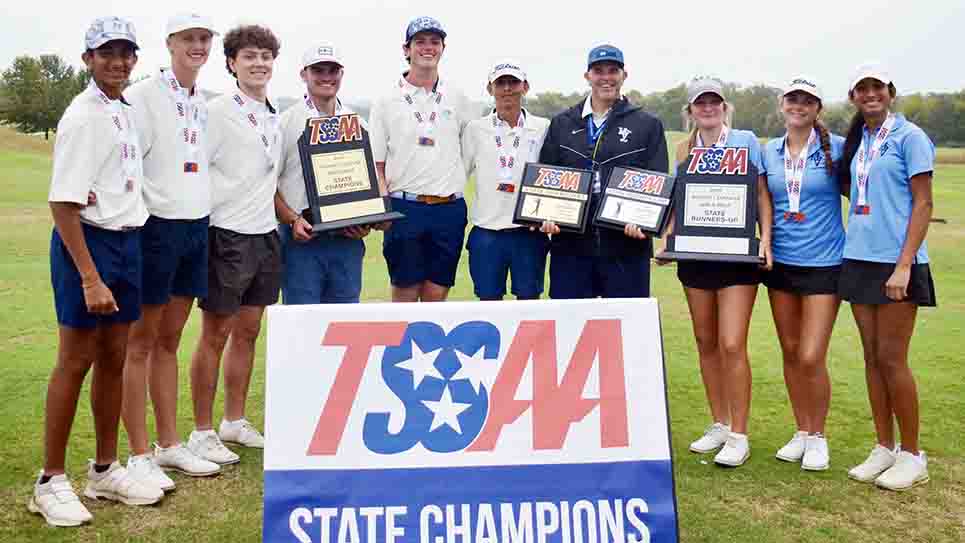By Steve Williams
The University of Tennessee football program has come off the track. The 41-0 loss to Georgia in a dressed up Neyland Stadium was just the latest shake and rattle before the derailment.
The Volunteer express under Butch Jones has been swerving for two seasons now. Faithful passengers are fed up and want off. I don’t blame them. This ride to seemingly nowhere has gotten old.
The biggest question now is should Jones be allowed to finish the season and given the opportunity to get the train back on track. Frankly, I am not confident he can. That’s based on five seasons of watching him at work and the results up until now.
But this is John Currie’s call. Only six months into his post as UT’s new athletics director, he has to make that decision. He has to do what he thinks is best for UT football.
Currie couldn’t be facing a more important decision, as football is the engine that pulls all the other sports in the athletic program.
When football is not doing well, it affects all the others.
The fact Currie has not cast a vote of confidence in support of Jones since the Georgia whipping tells me there could be things going on behind the scenes, such as discussions regarding a buyout and exploring potential coaching candidates.
The lopsided loss to the Bulldogs was Tennessee’s worst defeat since a 45-0 beating by Vanderbilt in Knoxville back in 1905. It also was the first time the Vols had been shut in 23 years.
A picture of Jones, accompanied by security officers, running off the field with his head down and only a scarce amount of fans still on hand in the background reflected the bleak shape of the football program.
Jones, who was head coach at Central Michigan and Cincinnati prior to arriving at Tennessee in 2013, has improved the UT program since the Derek Dooley days, but some now believe even Dooley was a better game day coach than Butch.
Jones had put Tennessee back in the national rankings and the Vols were in contention for the SEC East title and a berth in the conference championship game in 2016, but losses to South Carolina and Vanderbilt spoiled that and even knocked UT out of a trip to the Sugar Bowl.
The Vols outplayed rival Florida again this season but got beat on the last play of the game when the Gators got behind the secondary to complete a 64-yard bomb. Butch has only one win over Florida in five years. I honestly believe the Vols could have and should have won all five.
Tennessee returned from the Swamp as a 28-point favorite over UMass but its lethargic performance produced only a 17-13 win over the winless Minutemen.
There’s no question that changes need to be made, and Jones has already made a lot of them in his time at Tennessee. He has brought in new coordinators. He has brought in new position coaches. But one thing that hasn’t changed has been Jones’ way of doing things, particularly on the offensive side of the ball.
In Butch’s first season here, he had a pro-style quarterback in Justin Worley, who wouldn’t or couldn’t run the ball, a necessity in his read-option offense. If Jones didn’t have a quarterback to fit the system, why didn’t he put in a system to fit the personnel he had that season?
Five years later, we’ve had the same issue with Quentin Dormady, a non-running quarterback operating the read-option attack. Two years ago, I wondered why Jones would recruit a pro-style quarterback like Dormady in the first place.
For that matter, why did Jones recruit and sign a downhill running back like Jalen Hurd? Jones’ system wasn’t the best fit for the 6-4, 240-pound Hurd.
I’m tired of seeing Butch trying to drive a square peg into a round hole.
Furthermore, Jones’ lack of aggressive play calling equates to playing not to lose and has cost Tennessee some big wins … choosing to kick a field goal instead of going for a touchdown inches from the goal line against Oklahoma in 2014 … not going for two and the win against Texas A&M last year, even after the Aggies had jumped offsides … not punching the ball into the end zone with a tough runner like John Kelly on first-and-goal at the 1 against Florida this year.
Butch hasn’t changed his ways and he’s not going to change. He’s stubborn.
Jones’ greatest success at Tennessee has been off the field, helping elevate players’ academic scores, minimizing discipline problems and taking swift action when issues have occurred. He’s also recruited well, according to the ratings, to rebuild the roster, but success on the field hasn’t followed to the same degree, which has caused some critics to point to a lack of player development.
A large number of injuries affected the team’s play last year and again has been a factor this season. But all teams have injuries.
Tennessee football has been down this gloomy path before. I remember near the end of a disappointing 1976 season when an embattled Bill Battle finally said Tennessee fans needed a coach who could rally them and he couldn’t, so he stepped away. And I remember a sad day in the fall of 2008 when an emotional Phillip Fulmer said he loved Tennessee too much to see her stay divided, so he stepped aside.
History could end up repeating itself this coming Saturday when Tennessee plays South Carolina. Two times before, in the Johnny Majors era and in Fulmer’s last season, those coaches were fired after losses to the Gamecocks.
The only difference is Majors and Fulmer had built up a lot more equity in their coaching tenures at UT than Jones has. A whole lot more.






